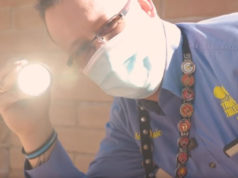For years, therapy in Fort Worth was something people whispered about or avoided entirely. It was treated like a last resort instead of a healthy outlet. But that’s changing, and quickly. What was once taboo has become a normal part of conversation, even among people who used to pride themselves on “toughing it out.” In a city known for its grit and independence, Fort Worth is discovering that strength can also mean saying, “I need help.”
A Shift In The Story We Tell Ourselves
The transformation didn’t happen overnight. A decade ago, therapy felt distant, reserved for big cities or private problems that no one talked about. Today, you can hear people mention their therapist as casually as they would a yoga instructor or personal trainer. The cultural conversation has shifted from avoidance to awareness, and that change has made mental health feel approachable.
Part of that shift comes from a growing understanding that emotional wellness is no less important than physical health. When your back hurts, you don’t hesitate to call a doctor. When your thoughts are heavy or your anxiety is stealing your sleep, that deserves care too. In Fort Worth, the idea of tending to your mind has become a natural extension of self-respect, not a weakness.
The Accessibility Factor
Another reason for the shift is simple access. Finding therapists in Fort Worth is easier than you might think, thanks to the city’s steady growth in mental health professionals and the rise of hybrid care models. Teletherapy has taken root, and more offices are offering flexible hours for people balancing work, family, and everything else that tends to land on a Texan’s plate.
You can find licensed therapists specializing in everything from trauma recovery to postpartum transitions to career burnout. Many are part of community collectives or small private practices that keep the tone personal and approachable. Fort Worth’s care scene is no longer sterile or intimidating. It’s human.
Therapy centers tucked between bistros, co-ops, and coworking spaces have helped dissolve that old sense of “going somewhere serious.” People might stop for coffee at Arcadia or Cultivar, then walk a few blocks to an appointment. The accessibility itself makes therapy feel like another part of life, routine, unremarkable, but deeply beneficial.
The Moment Of Truth
Still, even with better access and less stigma, there’s that one defining instant, the moment of truth, when you decide to actually reach out. That’s where everything changes.
For some, it’s a quiet morning when you realize you can’t think your way out of anxiety anymore. For others, it’s after one too many sleepless nights or one too many “I’m fine” replies when you’re not. That first step can feel uncomfortable, even foreign, but it’s also where the real strength shows up. Therapy isn’t about erasing your struggles. It’s about understanding them so they stop running the show.
When people talk about the breakthrough moment in therapy, it’s rarely dramatic. Sometimes it’s as small as a sentence landing differently, or the first time you say something out loud and feel a tiny sense of relief. That’s the quiet power of showing up. It’s not about fixing who you are. It’s about learning to see yourself clearly again.
Local Voices, Shared Strength
What’s especially refreshing is how open people have become about their experiences. Fort Worth’s community feel, the same thing that gives its neighborhoods such warmth, has turned into a source of shared strength. You’ll hear someone at the gym or in line at Melt Ice Creams mention therapy casually, not to confess, but to connect.
Local employers have also started normalizing the conversation by including mental health days in their policies. Churches, long a cornerstone of Fort Worth culture, are partnering with licensed professionals to bridge faith and counseling in ways that feel genuine and supportive. These small acts of honesty and integration have a ripple effect. They create a city where people don’t just survive stress but learn how to manage it with grace.
It’s not about perfection or having all the answers. It’s about creating a culture that values being real over pretending to be fine. Fort Worth, with its blend of tradition and innovation, is finding its own version of emotional health—one that fits the city’s character without diluting its strength.
What’s Ahead For Fort Worth’s Mental Health Culture
The progress is clear, but the momentum matters just as much. The more visible therapy becomes, the more likely people are to try it before they hit a wall. Schools are expanding counseling programs. Local nonprofits are stepping up to make mental health care affordable. And the number of younger residents choosing careers in psychology and social work reflects a long-term shift toward compassion as a community value.
There’s still work to do, of course. Access for low-income families and rural residents outside city limits remains uneven. But the direction Fort Worth is heading feels promising. The focus isn’t just on solving crises, it’s on building resilience, teaching emotional intelligence, and reframing therapy as a tool for living well, not just coping.
When a city begins to see mental health care as an everyday resource, it changes how people treat one another. You notice more patience, more listening, and less judgment. You see neighbors showing up for one another in small, consistent ways. And those small things add up to something bigger: a community where it’s normal to care.
In the end, Fort Worth’s growing openness to therapy isn’t about abandoning toughness. It’s about redefining it. The real strength lies in knowing when to put down your armor and tend to what’s underneath. The city once famous for its cattle drives and cowboy grit is showing a quieter, equally powerful side of resilience. It’s proof that healing doesn’t erase who you are. It deepens it.












